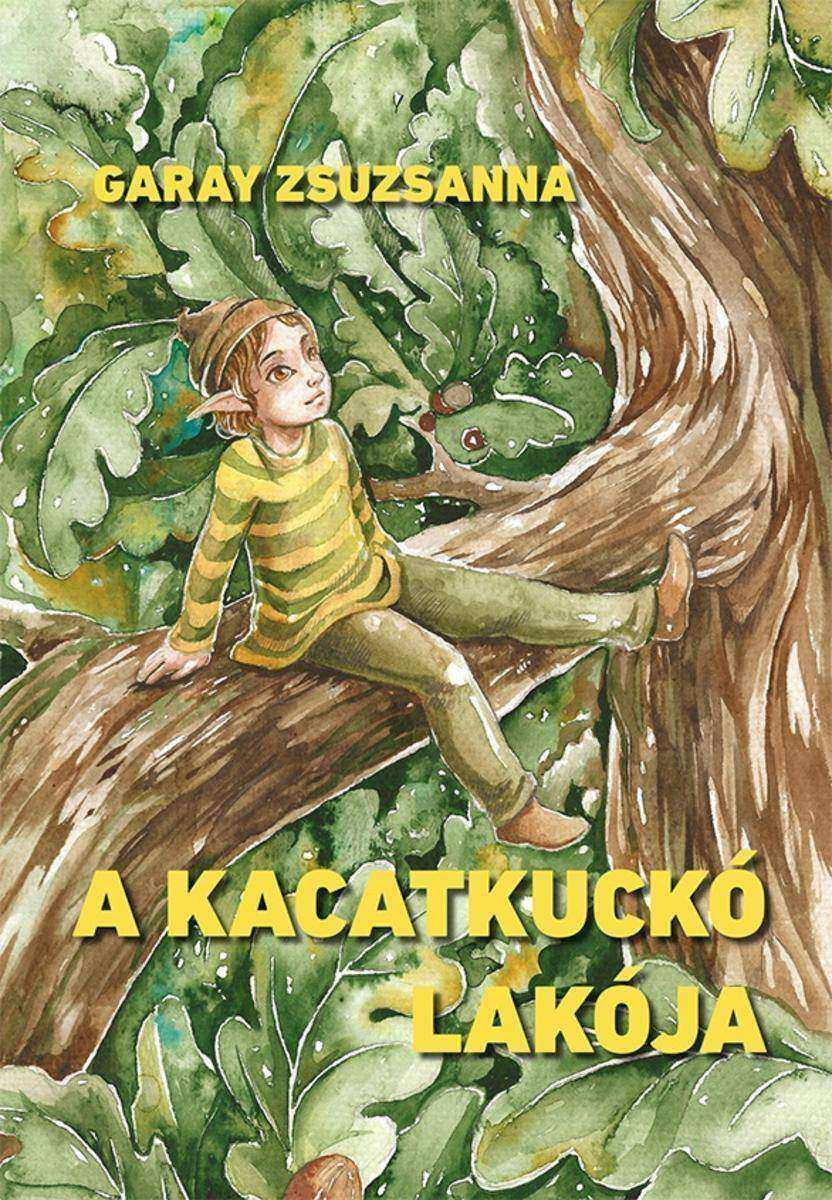
A kacatkuckó lakója
¥43.49
Когда над землей нависла угроза, Эндара поняла: она не проклята, ее устами говорит Богиня. Вновь развернет крылья алый дракон, великан покинет свою крепость — и грянет великая битва за Энду... Kogda nad zemlej navisla ugroza, Jendara ponjala: ona ne prokljata, ee ustami govorit Boginja. Vnov' razvernet kryl'ja alyj drakon, velikan pokinet svoju krepost' — i grjanet velikaja bitva za Jendu...
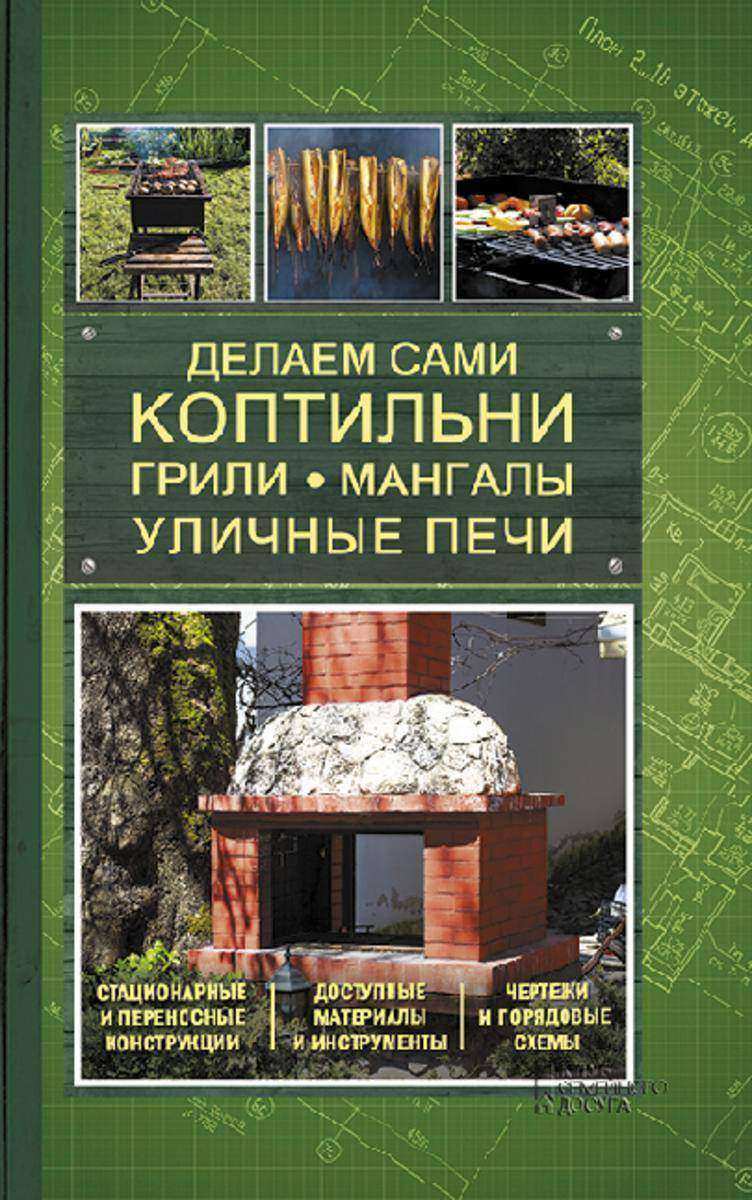
Делаем сами коптильни, грили, мангалы, уличные печи
¥17.74
,,Piktasis princas“ ?i pasaka yra apie ?iaur?j? princ?, kuris be perstojo kariaudamas, degindamas ir niokodamas, nusprend? u?kariauti vis? pasaul?. Princas man?, kad yra galingiausias valdovas visame pasaulyje. Vien? dien? jis nusprend? ?veikti pat? Diev?. Kaip susiklost? piktojo princo likimas? Perskaitykite patys. Pasaka yra kupina magijos, joje glūdi svarbios tiesos ir moralin?s vertyb?s. Jos turinys, charakteris ir spalvoti paveiksl?liai tikrai su?av?s visus vaikus. ?

?rulások
¥119.27
Az 5 tornacsuka mesés gyerek útik?nyve a Balaton-felvidékre kalauzolja ifjú olvasóit. Ebben a mesében barlangba bújunk, k?rnyezetet védünk és evez?t is ragadunk. Mert a Balaton t?bb, mint fürd?ruha, sokkal inkább tornacsuka. Tartsatok velünk, kalandra fel!
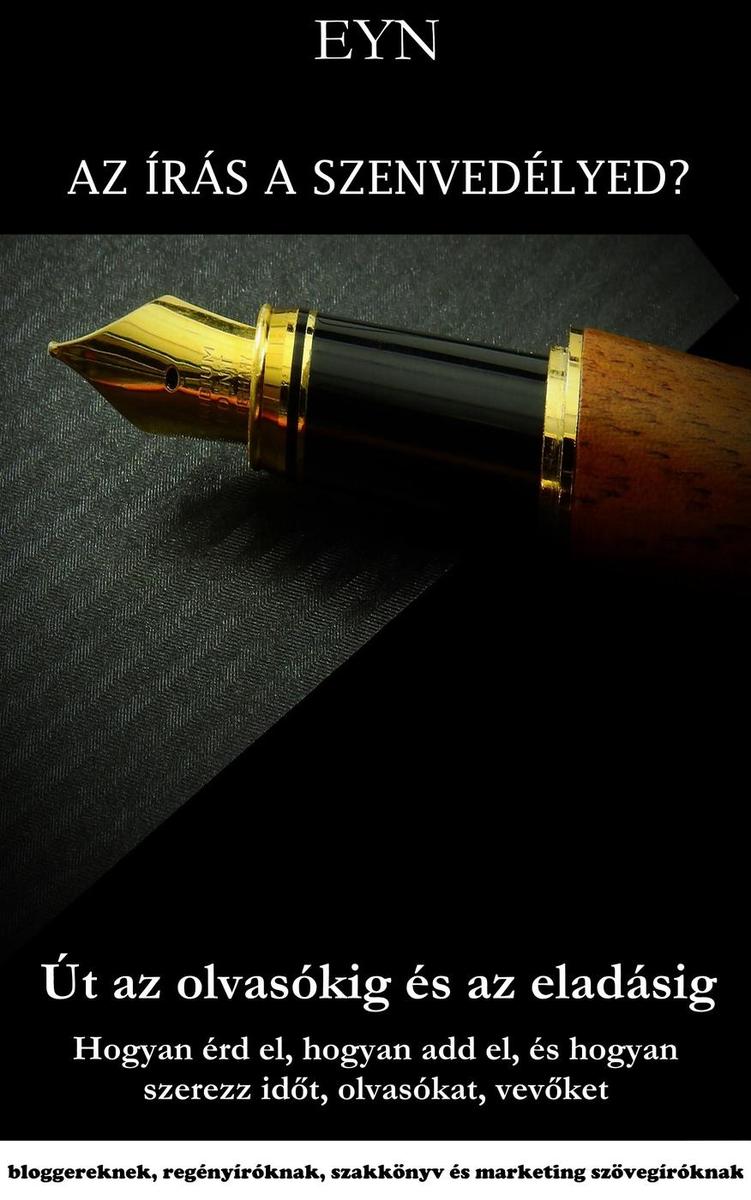
Az írás a szenvedélyed? ?t az olvasókig és az eladásig
¥43.98
Найти и обнаружить затонувший в ХV?I веке пиратский корабль — непростая задача. Но двое отчаянных храбрецов, Джон Чаттертон и Джон Маттера, готовы рисковать всем, чтобы найти ?Золотое руно? — корабль печально известного пирата Джозефа Баннистера. Он, неуловимый как выдуманный Джек Воробей, превзошел в смелости и отваге самого капитана Кидда и Черную Бороду, став единственным, кому удалось бежать от властей. Но как найти на дне океана корабль, затонувший 300 лет назад, который и под парусами был неузнаваемым? Для этого мало современных приборов и пыльных архивов. Для этого нужно думать и действовать как настоящие пираты…Najti i obnaruzhit' zatonuvshij v HV?I veke piratskij korabl' — neprostaja zadacha. No dvoe otchajannyh hrabrecov, Dzhon Chatterton i Dzhon Mattera, gotovy riskovat' vsem, chtoby najti ?Zolotoe runo? — korabl' pechal'no izvestnogo pirata Dzhozefa Bannistera. On, neulovimyj kak vydumannyj Dzhek Vorobej, prevzoshel v smelosti i otvage samogo kapitana Kidda i Chernuju Borodu, stav edinstvennym, komu udalos' bezhat' ot vlastej. No kak najti na dne okeana korabl', zatonuvshij 300 let nazad, kotoryj i pod parusami byl neuznavaemym? Dlja jetogo malo sovremennyh priborov i pyl'nyh arhivov. Dlja jetogo nuzhno dumat' i dejstvovat' kak nastojashhie piraty…

Az ?rd?g lánya 1.: Szilvia arab világa
¥25.91
Книга стала выбором осени 2015 престижного книжного клуба Richard & Judy Права были куплены сразу в 12 странах Планируется экранизация одной из ведущих кинокомпаний Голливуда Несколько лет назад Рут и Марк переехали из шумного Лондона в провинциальный городок. Но живописное место вскоре превратилось в настоящий ад. Уже несколько лет здесь не было дождя. Кто-то называет Рут ведьмой, а кто-то — избранной. Ведь засуха сгубила все, лишь в имении Велл по-прежнему зеленела трава и поблескивали под солнечными лучами пруды. В одном из них утонул любимый внук Рут. Женщина уверена, что ему кто-то помог умереть. Она собирается наказать преступника и готовит план мести… Kniga stala vyborom oseni 2015 prestizhnogo knizhnogo kluba Richard & Judy Prava byli kupleny srazu v 12 stranah Planiruetsja jekranizacija odnoj iz vedushhih kinokompanij Gollivuda Neskol'ko let nazad Rut i Mark pereehali iz shumnogo Londona v provincial'nyj gorodok. No zhivopisnoe mesto vskore prevratilos' v nastojashhij ad. Uzhe neskol'ko let zdes' ne bylo dozhdja. Kto-to nazyvaet Rut ved'moj, a kto-to — izbrannoj. Ved' zasuha sgubila vse, lish' v imenii Vell po-prezhnemu zelenela trava i pobleskivali pod solnechnymi luchami prudy. V odnom iz nih utonul ljubimyj vnuk Rut. Zhenshhina uverena, chto emu kto-to pomog umeret'. Ona sobiraetsja nakazat' prestupnika i gotovit plan mesti…

Секреты домашнего копчения (Sekrety domashnego kopchenija)
¥17.74
Ця книжка стане пусковим механ?змом для тих, хто прагне мислити та створювати нове, а не коп?ювати в?дпрацьован? шаблони. Автор перекону?: роблячи те, що ми вже зна?мо, ми руха?мо св?т в?д 1 до n, додаючи б?льше чогось вже знаного; проте щоразу, коли ми створю?мо щось нове, ми ступа?мо в?д 0 до 1. Т?ль покроково опису? д??в?сть експоненц?ального закону у св?т? стартап?в, та?мниц? роботи ?з венчурним кап?талом, а також ?нновац?йн? ?де? майбутнього, як? зм?нять життя людей до невп?знаваност?...

A kis szellem
¥58.78
Defoe's novel Robinson Crusoe (1719) tells of a man's shipwreck on a deserted island and his subsequent adventures. The author based part of his narrative on the story of the Scottish castaway Alexander Selkirk, who spent four years stranded on the island of Juan Fernandez. He may have also been inspired by the Latin or English translation of a book by the Andalusian-Arab Muslim polymath Ibn Tufail, who was known as "Abubacer" in Europe. The Latin edition of the book was entitled Philosophus Autodidactus and it was an earlier novel that is also set on a deserted island. "One day, about noon, going towards my boat, I was exceedingly surprised with the print of a man's naked foot on the shore, which was very plain to be seen on the sand."— Defoe's Robinson Crusoe, 1719 The novel has been variously read as an allegory for the development of civilisation, as a manifesto of economic individualism and as an expression of European colonial desires but it also shows the importance of repentance and illustrates the strength of Defoe's religious convictions. It is also considered by many to be the first novel written in English. Early critics, such as Robert Louis Stevenson admired it saying that the footprint scene in Crusoe was one of the four greatest in English literature and most unforgettable; more prosaically, Dr. Wesley Vernon has seen the origins of forensic podiatry in this episode. It has inspired a new genre, the Robinsonade as works like Johann David Wyss's The Swiss Family Robinson (1812) adapt its premise and has provoked modern postcolonial responses, including J. M. Coetzee's Foe (1986) and Michel Tournier's Vendredi ou les Limbes du Pacifique (in English, Friday, or, The Other Island) (1967). Two sequels followed, Defoe's The Farther Adventures of Robinson Crusoe (1719) and his Serious reflections during the life and surprising adventures of Robinson Crusoe: with his Vision of the angelick world (1720). Jonathan Swift's Gulliver's Travels (1726) in part parodies Defoe's adventure novel. ? About Author: Daniel Defoe (1660 – 24 April 1731), born Daniel Foe, was an English trader, writer, journalist, pamphleteer, and spy, now most famous for his novel Robinson Crusoe. Defoe is notable for being one of the earliest proponents of the novel, as he helped to popularise the form in Britain, and, along with others such as Samuel Richardson, is among the founders of the English novel. A prolific and versatile writer, he wrote more than 500 books, pamphlets and journals on various topics (including politics, crime, religion, marriage, psychology and the supernatural). He was also a pioneer of economic journalism. ? Early lifeDaniel Foe (his original name) was probably born in the parish of St. Giles Cripplegate, London. Defoe later added the aristocratic-sounding "De" to his name and on occasion claimed descent from the family of De Beau Faux. His birthdate and birthplace are uncertain: sources offer dates of anywhere between 1659 to 1662; considered most likely to be 1660. His father, James Foe, was a prosperous tallow chandler and a member of the Butchers' Company. In Defoe's early life he experienced firsthand some of the most unusual occurrences in English history: in 1665, 70,000 were killed by the Great Plague of London and the Great Fire of London (1666) left standing only Defoe's and two other houses in his neighborhood. In 1667, when he was probably about 7, Dutch fleet sailed up the Medway via the River Thames and attacked Chatham. His mother Annie had died by the time he was about 10.

Укра?нська легко! (Ukra?ns'ka legko!)
¥26.65
Н?л Фер?юсон зауважу?: ?Ще на початку XV стол?ття сама лише думка про те, що наступн? п’ять стол?ть Зах?д буде дом?нувати над рештою св?ту, здалася б дуже дивною. А вт?м, це сталося?. ? нин? могутн?сть Заходу вража? нав?ть найбагатшу уяву... То чому ж так трапилося? Чому ?вропа, що на 1500-й р?к поступалася Сходу за багатьма показниками — економ?чними, технолог?чними, демограф?чними, — зум?ла р?зко рвонути уперед ? досягти безперечного св?тового панування? Як? складов? усп?ху зах?дно? цив?л?зац??? Саме ц? дражлив? питання украй см?ливо, часом нав?ть зухвало, а проте надзвичайно захопливо висв?тлю? Н?л Фер?юсон.

Украшаем выпечку масляным кремомм
¥17.74
Tomasz Stawiszyński, filozof, publicysta zwi?zany mi?dzy innymi z ?Newsweekiem”, odwa?nie wylicza psychoterapeutyczne mity i pi?tnuje wielbion? bezkrytycznie psychologi?. Przekonuje, ?e wspó?czesna kultura i psychoterapia promuj? idea? cz?owieka, którego nie sposób zrealizowa? w praktyce. Tymczasem zdrady, depresja i chaos nie s? czym?, co trzeba zawsze pot?pia? i eliminowa?. Przeciwnie, odpowiednio zrozumiane czyni? ?ycie g??bszym i prawdziwszym, cho? niekoniecznie ?atwiejszym. A ?atwo?? ?ycia – któr? obiecuj? dzisiaj ró?ni terapeuci albo coachowie – to kolejny mit, bo d??enie do niej wzmacnia tylko problemy, jakich odruchowo chcemy si? pozby?. Ta fascynuj?ca ksi??ka przygl?da si? podejrzliwie zmitologizowanym prawdom psychologicznym, które przez ostatnie dekady dobrze nakr?ci?y nam w g?owie i zrobi?y wod? z mózgu. Tomasz Stawiszyński, filozof z talentem felietonisty, nie tylko ratuje nasz zdrowy rozs?dek, lecz tak?e prowadzi w kierunku szerszego, bardziej uniwersalnego rozumienia psychologii cz?owieka w uj?ciu Jamesa Hillmanna jako specyficznej wiedzy o otaczaj?cym nas dziwnym, skomplikowanym i wielopi?trowym ?wiecie. Dla wszystkich, którym nie wystarcza psychologiczna tradycja. Olga Tokarczuk Nie wierzcie – mówi Tomasz Stawiszyński – w sprowadzenie na ?wiat ?cz?owieka idealnego“. Nie wierzcie zw?aszcza wtedy, gdy wmawiaj? wam zewsz?d, ?e to wy nim mo?ecie zosta?, ?e macie w sobie tak? moc. A tymczasem to ideologiczna zmora, to potwór, który czyha na wasz? wolno??. prof. Zbigniew Miko?ejko, filozof religii, Instytut Filozofii i Socjologii PAN

Shirzan szerelme: ?gyas és úrn? 1.
¥58.29
Подарунок шанувальникам! Чотири уславлен? твори: ?Рита Гейворт ? втеча з Шоушенку?, ?Зд?бний учень?, ?Т?ло?, ?Метод дихання?! Podarunok shanuval'nikam! Chotiri uslavlen? tvori: ?Rita Gejvort ? vtecha z Shoushenku?, ?Zd?bnij uchen'?, ?T?lo?, ?Metod dihannja?!

Смажен? зелен? пом?дори в кафе "Зупинка"
¥17.99
Malaria Андрея М. Мелехова – это необычный приключенческий роман о прошлом, настоящем и будущем. Читая его, мы становимся свидетелями последних месяцев существования СССР. Последний съезд КПСС, последний футбольный чемпион умирающей империи, первые ростки капитализма и начало раскола советского народа по национальному признаку. Война в Ираке и конфликт в Нагорном Карабахе. Несколько сот советских военных советников, специалистов и переводчиков, занесённых в раздираемую гражданской войной Анголу, служат, спекулируют, рассуждают о судьбе страны, любят женщин, торгуют запчастями от истребителей и иногда становятся героями. Планируют операции против партизан УНИТА, попадают в засады и чудом спасаются из сбитых вертолётов. Они с тоской читают советские газеты месячной давности и болеют малярией. Главный герой романа – юный офицер-переводчик, закончивший первый курс Военного института. Честный, справедливый и пока во многом наивный юноша. Волею судьбы восемнадцатилетний парень становится участником событий, призванных изменить судьбы мира на десятилетия вперёд. Как это ни странно, лишь в малярийном бреду ему открывается загадочная связь между далёким прошлым и далёким будущим...

A hallgatás mérge
¥58.29
Вражаюча ?стор?я, яку розпов?да?... Смерть! До влади в Н?меччин? прийшли фашисти. Вперше Смерть побачив маленьку Л?зель, коли прийшов забрати душу ?? братика. В?н став св?дком того, як д?вчинка вкрала першу книжку, ? зац?кавився ?? долею. В?н приходив до ?? будинку, де, ризикуючи життям, родина переховувала ?врея. В?н слухав, як Л?зель читала книжки п?д час бомбардувань. Смерть завжди був поруч. П?д час останньо? зустр?ч? в?н розкри? крад?йц? книжок свою найб?льшу та?мницю... Vrazhajucha ?stor?ja, jaku rozpov?da?... Smert'! Do vladi v N?mechchin? prijshli fashisti. Vpershe Smert' pobachiv malen'ku L?zel', koli prijshov zabrati dushu ?? bratika. V?n stav sv?dkom togo, jak d?vchinka vkrala pershu knizhku, ? zac?kavivsja ?? doleju. V?n prihodiv do ?? budinku, de, rizikujuchi zhittjam, rodina perehovuvala ?vreja. V?n sluhav, jak L?zel' chitala knizhki p?d chas bombarduvan'. Smert' zavzhdi buv poruch. P?d chas ostann'o? zustr?ch? v?n rozkri? krad?jc? knizhok svoju najb?l'shu ta?mnicju...

A Hazug kulcsa
¥80.28
A new client arrives to meet Holmes and, after trying to hide his identity for about two seconds, comes clean: he is Wilhelm Gottsreich Sigismond von Ormstein, Grand Duke of Cassel-Felstein and hereditary King of Bohemia (whoa, that's a lot of letters for one name! Bohemia, by the way, is now part of the modern-day Czech Republic). His problem is that he's about to marry the daughter of the King of Scandinavia. The thing is, though, she's from a family with very strict morals, and she wouldn't be pleased to know that he had a serious affair with another woman before their engagement. This woman is Irene Adler – who lives on in Holmes's memory as the woman. She's a singer who met the King in Warsaw, where they subsequently had a bit of a fling. Unfortunately, the King allowed himself to be photographed with Adler, and she has the picture. The King wants Holmes to recover the incriminating photo. Holmes agrees. Holmes then puts on a disguise and goes to Irene Adler's current house in London to stake it out. He finds out that she gets frequent calls from a lawyer, Godfrey Norton. Holmes even happens to be on the site when Adler rushes out of her house to meet Norton at a small church and – get this – our detective is actually called upon (still in disguise) to be the witness for her marriage to the guy. After their surprise elopement, Adler goes back to her house, and Holmes realizes he has to hurry to get the photo back before she has a chance to leave with her new husband.

Vízvonal
¥58.29
Он обошел на яхте ?Спрей? вокруг земного шара, оставаясь один на один с морской стихией. On oboshel na jahte ?Sprej? vokrug zemnogo shara, ostavajas' odin na odin s morskoj stihiej.
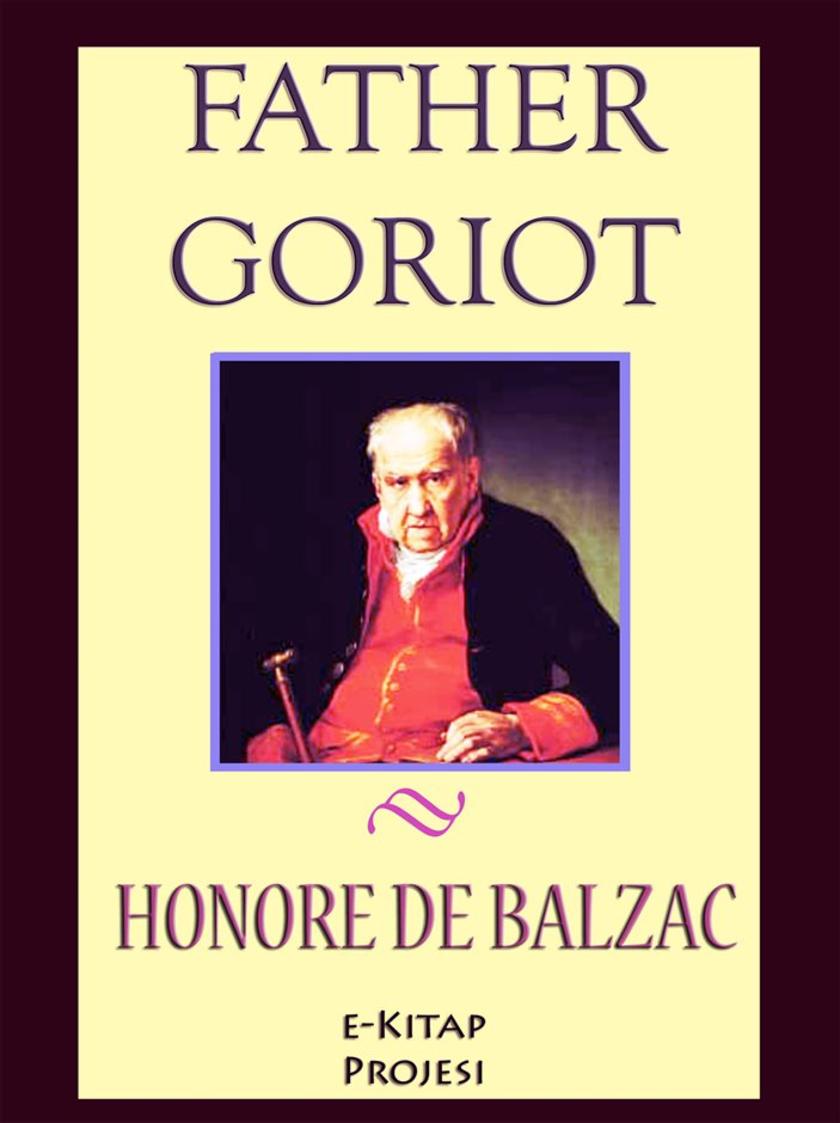
Father Goriot
¥18.74
In 1861, Henry Dircks, a civil engineer, of London, published a work entitled "Perpetuum Mobile; or, Search for Self-Motive Power, During the Seventeenth, Eighteenth and Nineteenth Centuries." The book contains 599 pages, and was followed in 1870, by a second series by the same author entitled "Perpetuum Mobile, or a History of the Search for Self-Motive Power from the Thirteenth, to the Nineteenth Century." In these two books there is amassed a wonderful amount of material showing on the part of the author diligence, great patience and wide and thorough search.The author of these works was not enamoured of his subject, and his books clearly show that he was not writing them because of any interest he had in the subject of Perpetual Motion. On the contrary, they appear to have been written because of a deep detestation entertained by the author for the subject of Perpetual Motion, and a contemptuous pity for any one seriously interested in the subject. Mr. Dircks's works may be said to be the works of a scold. His sentiments were deep, and his impulses strong, which accounts for the vast amount of labor he did in the preparation of his books. Those books are now out of print, and it is believed by the author of this book that they may well remain so. They contain much material that no one would be justified in wading through. The most complicated mechanisms devised by enthusiastic dreamers are shown in the same detail with which the inventors described them in presenting them to the public, or to the patent offices. Little is to be gained by this. So complicated are many of the devices that only technically trained engineers could read them understandingly, and few technically trained engineers are now greatly interested in self-motive power devices. We believe that every useful or interesting purpose is served if enough devices are collected, classified and presented to show the various principles relied upon by the inventors; with an explanation of why they failed—i. e., wherein the principles relied upon are wrong, and while possibly not out of harmony with any mechanical principles then known, are entirely out of harmony with principles since discovered and now well known. In the preparation of this volume a vast amount of the information furnished by the two works of Mr. Dircks has been rearranged, reclassified, and used.Everyone who has to any extent, by environment, associated with the mass of people who are not technically educated, knows that the persons who are still interested in the subject of Perpetual Motion, and who still seek its attainment, are not technically trained engineers or mathematicians, but for the greater part untrained people of naturally strong mechanical sense, and of natural mechanical and mathematical adaptation.This book is written for the perusal of that large class of people. It is not designed as an argument either for or against the possibility of the attainment of Perpetual Motion. The author is content to classify and present—clearly, it is hoped—the leading endeavors that have been known in that field of effort, and to explain their failure. It is believed by the author that the perusal of the present volume by anyone whose mind has been attracted by the subject of Perpetual Motion will result in an enlightenment, and, it is also believed, will have a tendency to direct his mind from a struggle with theories long ago exploded, and may result in directing his efforts to things practical, and not without hope of attainment.This work is offered only to minds mechanically or mathematically inclined. It is not even hoped that it will interest people who prefer fiction to fact, nor people who read simply for idle entertainment. ABOUT AUTHOR: The author has no apology to offer for the production of this book. He has spent his life in environments that have brought him into constant contact with mechanics, artisans and laborers as well as professional men, engineers, chemists and technical experts of various types. He knows a great many men—young men, for the most part—are constantly working on the old, old problem of Perpetual Motion; that much money, and much time are being spent in search of a solution for that problem which all scientific and technical men tell us is impossible of solution.It is believed by the author that a classification and presentation of selected groups of the devices produced in the past by which it was by the inventor believed, self-motive power had been attained, will save much work in fields already thoroughly exploited.So far as the author knows no book on the subject has appeared since 1870. The various encyclopedias published contain articles on the subject, but they are necessarily brief, and not satisfying to young men who have become interested in the subject.

Торты и пирожные без выпекания. Вкусные десерты без хлопот!
¥17.74
К?лька стол?ть нам нав’язували ?деальний образ людини — комун?кабельно?, харизматично?, енерг?йно?, — мовляв, саме ц? риси — запорука усп?ху. Тому й не дивно, що б?льш?сть переступила через себе, намагаючись в?дпов?дати цьому вз?рцев?. Сьюзен Кейн вважа?, що час скинути маски, ? на численних прикладах з пол?тики, б?знесу, осв?ти, громадського та культурного життя розпов?да?, у чому кри?ться потенц?ал тихих людей. Кейн сама ?нтроверт, тому щиро д?литься порадами, як здобути усп?х на робот? ? в особистому житт?, при цьому залишаючись самим собою.

Королева пустел?: Одна ж?нка здатна зм?нити х?д ?стор??
¥28.29
Un incredibile tornado si abbatte sul Kansas travolgendo la fattoria della piccola Dorothy e trasportandola, insieme con il suo cagnolino Toto, in un paese lontano e sconosciuto. Qui, dopo aver schiacciato la malvagia Strega dell'est, la bambina è accolta come un'eroina dal popolo che la megera teneva in ostaggio. Ma per tornare a casa Dorothy dovrà affrontare mille avventure accompagnata da uno Spaventapasseri, un Taglialegna di Latta e un Leone Vigliacco. Insieme sperano di incontrare il potente Mago di Oz nella splendida città di Smeraldo, l'unico che si dice sarà in grado di aiutarli.

Gwendolyn: Manor House titka
¥23.30
Схемы, иллюстрации и инструкции помогут без труда справиться с работой. ? Красивые и надежные заборы из дерева, металла, сетки-рабицы, кирпича, камня, бетона ? Живые изгороди и др. Shemy, illjustracii i instrukcii pomogut bez truda spravit'sja s rabotoj. ? Krasivye i nadezhnye zabory iz dereva, metalla, setki-rabicy, kirpicha, kamnja, betona ? Zhivye izgorodi i dr.
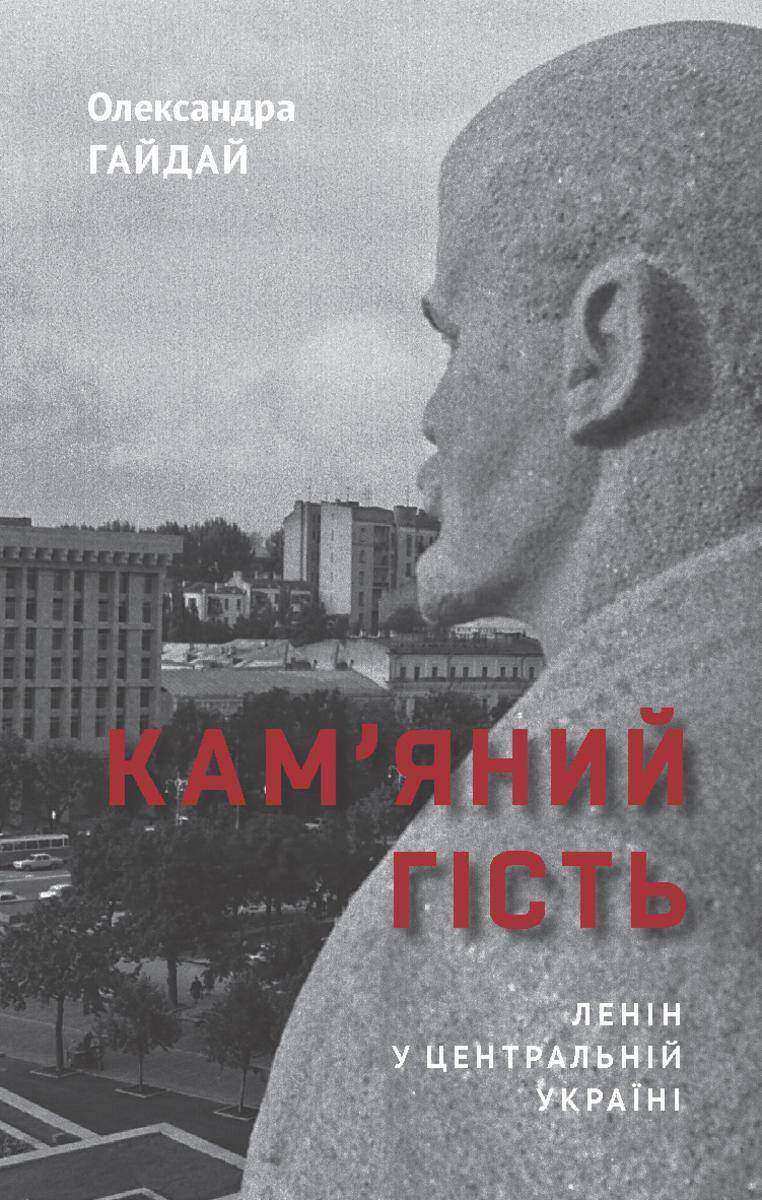
Кам’яний г?сть. Лен?н у Центральн?й Укра?н?
¥17.58
O livro apresenta uma abordagem sobre como foram construídos os saberes inerentes à medicina e ao hospital na Sociedade Moderna. Mostra, historicamente, como foi estabelecido o poder e as práticas médico-hospitalares. A obra apresenta o discurso das institui??es dominantes sobre o modelo assistencial, como também revela a realidade pragmática do acesso efetivo ao direito social à saúde, que, formalmente, foi expresso como uma necessidade básica traduzida em mínimos sociais, como condi??o legítima de dignidade da pessoa humana. A relev?ncia desse estudo é em virtude de sua especial significa??o nas diversas áreas das Ciências Humanas e Sociais, ao nutrir o debate sobre a temática do Direito à Saúde nas inst?ncias do Poder Público, bem como ao introduzi-la na agenda das profiss?es relacionadas com o campo da saúde, aprofundando suas dimens?es de transdisciplinariedade e transversalidade.
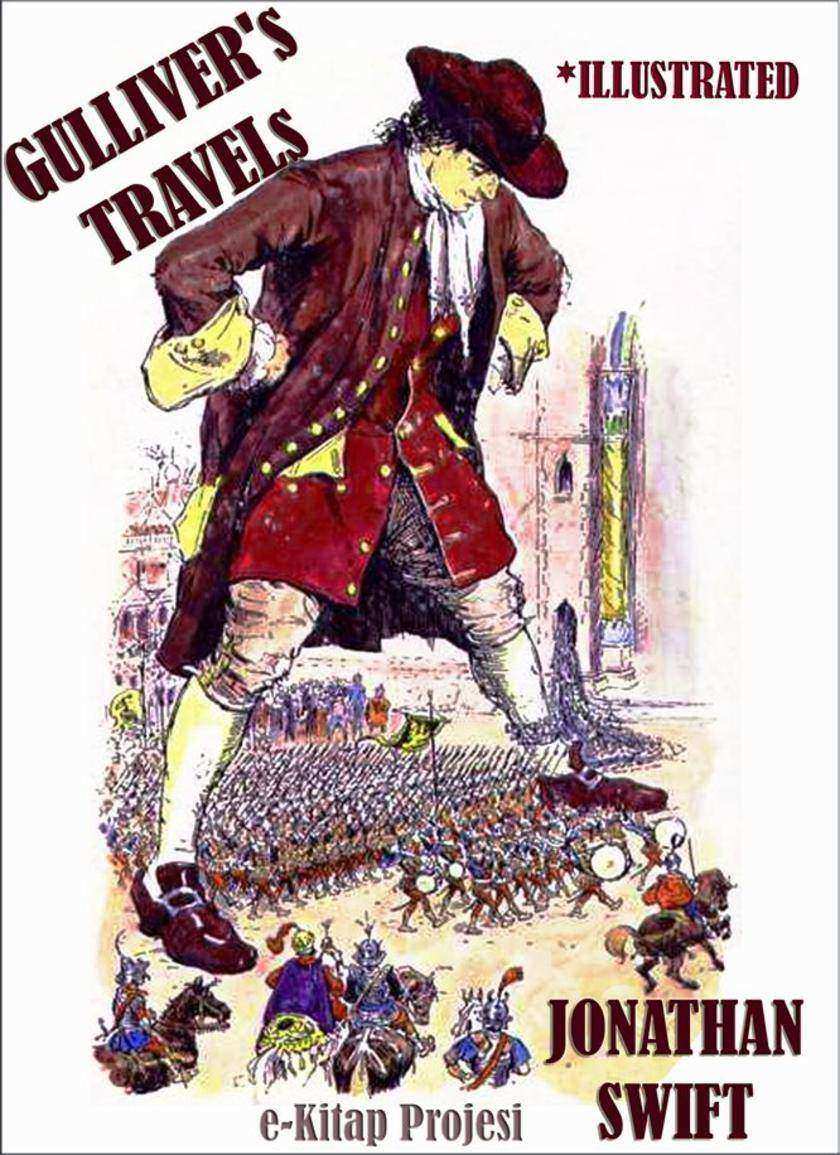
Gulliver's Travels
¥28.04
Fear cut through the unconscious mind of Wilbur Hawkes. With almost physical violence, it tightened his throat and knifed at his heart. It darted into his numbed brain, screaming at him. He was a soft egg in a vast globe of elastic gelatine. Two creatures swam menacingly through the resisting globe toward him. The gelatine fought against them, but they came on. One was near, and made a mystic pass. He screamed at it, and the gelatine grew stronger, throwing them back and away. Suddenly, the creatures drew back. A door opened, and they were gone. But he couldn't let them go. If they escaped.... Hawkes jerked upright in his bed, gasping out a hoarse cry, and the sound of his own voice completed the awakening. He opened his eyes to a murky darkness that was barely relieved by the little night-light. For a second, the nightmare was so strong on his mind that he seemed to see two shadows beyond the door, rushing down the steps. He fought off the illusion, and with straining senses jerked his head around the room. There was nothing there. Sweat was beading his forehead, and he could feel his pulse racing. He had to get out—had to leave—at once!He forced the idea aside. There was something cloudy in his mind, but he made reason take over and shove away some of the heavy fear. His fingers found a cigarette and lighted it automatically. The first familiar breath of smoke in his lungs helped. He drew in deeply again, while the tiny sounds in the room became meaningful. There was the insistent ticking of a clock and the soft shushing sound of a tape recorder. He stared at the machine, running on fast rewind, and reversed it to play. But the tape seemed to be blank, or erased. He crushed the cigarette out on a table-top where other butts lay in disorder. It looked wrong, and his mind leaped up in sudden frantic fear, before he could calm it again. This time, reason echoed his emotional unease.Hawkes had never smoked before!But his fingers were already lighting another by old habit. His thoughts lurched, seeking for an answer. There was only a vague sense of something missing—a period of time seemed to have passed. It felt like a long period, but he had no memory of it. There had been the final fight with Irma, when he'd gone stalking out of the house, telling her to get a divorce any way she wanted. He'd opened the mail-box and taken out a letter—a letter from a Professor....His mind refused to go further. There was only a complete blank after that. But it had been in midwinter, and now he could make out the faint outlines of full-leafed trees against the sky through the window! Months had gone by—and there was no faintest trace of them in his mind. They'll get you! You can't escape! Hurry, go, GO!...The cigarette fell from his shaking hands, and he was half out of the bed before the rational part of his mind could cut off the fear thoughts. He flipped on the lights, afraid of the dimness. It didn't help. The room was dusty, as if unused for months, and there was a cobweb in one corner by the mirror.His own face shocked him. It was the same lean, sharp-featured face as ever, under the shock of nondescript, sandy hair. His ears still stuck out too much, and his lips were a trifle too thin. It looked no more than his thirty years; but it was a strained face, now—painted with weeks of fatigue, and grayish with fear, sweat-streaked and with nervous tension in every corded tendon of his throat. His somewhat bony, average-height figure shook visibly as he climbed from the bed.Hawkes stood fighting himself, trying to get back in the bed, but it was a losing battle. Something seemed to swing up in the corner of the room, as if a shadow moved. He jerked his head toward it, but there was nothing there. He heard his breath gasping harshly, and his knuckles whitened. There was the taste of blood in the corner of his mouth where he was biting his lips.Get out! They'll be here at once! Leave—GO!

Торты с сюрпризом. Шоколадные, сливочные, кофейные,
¥18.07
Перешкод не уникнути. Вони розчаровують ? парал?зують сучасне сусп?льство. Та год? ?х сприймати негативно, вважа? мед?астратег Раян Гол?дей. Адже кожна перешкода — це можлив?сть перев?рити себе, спробувати щось нове ?, врешт?-решт, вийти переможцем.??Використовуючи принципи сто?к?в, автор допоможе побачити ситуац?ю в ц?лому ? зосередитися на тому, що можна зм?нити. Навчить, як стати емоц?йно ст?йк?шим, знаходити у проблемах можливост? ? виробити ?мун?тет до труднощ?в.??




 购物车
购物车 个人中心
个人中心



